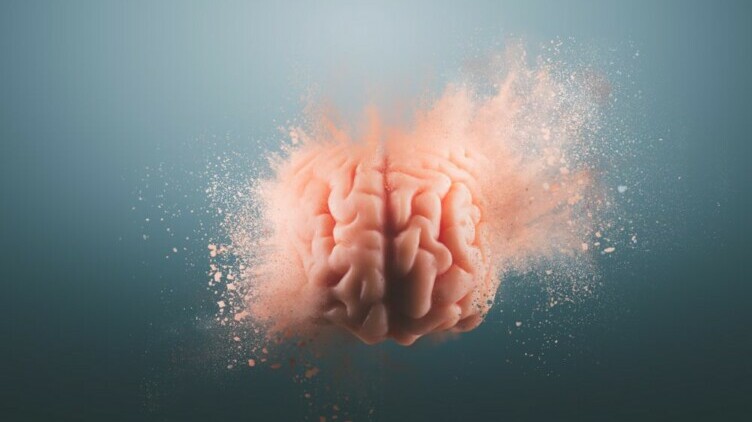Irish Criminal Assets Bureau – Deny And Deprive Criminals Of Assets Acquired Through Criminal Conduct
Author:
• SCARS Editorial Team – Anthropologist, Scientist, Director of the Society of Citizens Against Relationship Scams Inc.
The Irish Criminal Assets Bureau – Establishing A Perfect Model To Disrupt Transnational Scammers & Cybercriminals Worldwide
Irish Criminal Assets Bureau: Seize • Tax • Recover
Under the Proceeds of Crime Act, 1996 to 2016 the Criminal Assets Bureau can freeze and seize assets which it shows to the Irish High Court are the proceeds of criminal conduct. This is done on the civil standard of proof which is known internationally as non-Conviction Based Forfeiture. Because Ireland is a part of the European Union, this gives them certain authority across Europe as well.
The Criminal Assets Bureau can tax all sources of income. Where a person has a lifestyle not consistent with their returns to the Revenue Commissioners, the Bureau can raise tax assessments, issue tax demands and collect tax where it has not been paid. CAB can also implement all Customs controls and legislation as and when necessary.
The Criminal Assets Bureau can also enforce Social Welfare payments under the Department of Social Protection. The Bureau is empowered to investigate, determine, and recover any Social Welfare payments that have been falsely claimed. The Minister may also refer cases to the Bureau where there are reasonable grounds to believe that Social Welfare Officials may be subject to threats or other forms of intimidation.
About the Criminal Assets Bureau
The Criminal Assets Bureau was established on 15 October 1996 as an independent statutory body by enactment of the Criminal Assets Bureau Act 1996. Its establishment followed the murders of Detective Garda Jerry McCabe and Journalist Veronica Guerin in June 1996. It operates as a part of the An Garda Síochána (Irish Police & Security Service), of the Office of the Revenue Commissioners (Taxes and Customs), and of the Department of Social Protection.
The Bureau is a key part of the Irish State in tackling criminal activity, in particular, serious and organized criminal activity. It seeks to deny and deprive criminals of assets acquired through criminal conduct. The range of criminal conduct is varied and includes drug trafficking, theft, burglary, fraud (including scams), and money laundering.
The Criminal Assets Bureau is a corporate body with perpetual succession and an official seal. It has the power to sue and be sued in its corporate name. The Bureau also has the power to acquire, hold, and dispose of land or an interest in land and to acquire, hold, and dispose of any other property, including cryptocurrency.
In accordance with relevant legislation, all monies collected by the Criminal Assets Bureau are transferred to the Irish Exchequer for the benefit of the Central Fund or such other determination by Irish courts.
Criminal Assets Bureau Sale and Disposal of Seized Assets
The sale/disposal of all seized assets is dealt with on a case-by-case basis and in accordance with the order(s) of the Irish High Court. These orders can specify the method/type of sale, the required approval, and/or other stipulations as the Court views appropriate, including the return to victims or confiscation by the government.
Criminal Assets Bureau Functions
The functions of the Criminal Assets Bureau are set out at Section 5 of the Criminal Assets Bureau Act of 1996. In August of 2016, the Bureau welcomed the Proceeds of Crime (Amendment) Act, 2016. This amendment gave the Bureau two additional powers:
- Section 1A provides for the seizure of assets by Bureau Officers under limited circumstances and
- Reduced the threshold of value in proceeds of crime cases from €13,000 to €5,000. This means they can have jurisdiction in much smaller cases for the benefit of victims and the public.
Who is the Criminal Assets Bureau
The Criminal Assets Bureau is a multi-disciplinary body, made up of members of An Garda Síochána (Irish Police & Security Service), officials from the Office of the Revenue Commissioners (Taxes and Customs), officials of the Department of Social Protection, together with staff from the Department of Justice, including the Bureau Legal Officer, Forensic Accountants, Financial Crime Analysts, IT experts, and Administrative Staff.
The Criminal Assets Bureau (as of December 2023) is led by the Chief Bureau Officer (CBO). The current CBO is Detective Chief Superintendent Michael Gubbins. The CBO is appointed by the Garda Commissioner from the rank of Chief Superintendent to carry, manage, and control the administration and business of the Bureau. In the absence of the CBO, the Commissioner may appoint for the purpose of the functions of the Bureau an Acting Chief Bureau Officer. This person is generally the Detective Superintendent attached to the Bureau.
The Bureau Legal Officer (BLO) is a member of staff of the Criminal Assets Bureau appointed by the Minister for Justice with the consent of the Attorney General and Minister for Finance. The BLO reports directly to the Chief Bureau Officer with the purpose of assisting the Bureau in the pursuit of its objectives and functions. The current Bureau Legal Officer is Mr Kevin McMeel.
There are two categories of personnel attached to the Criminal Assets Bureau:
- Bureau Officers (Gardaí, Revenue Officers (both Taxes and Customs,) and Social Protection Officers and
- Bureau Staff (Bureau Legal Officer, Administration, IT, Forensic Accountants, and Financial Crime Analysts).
To learn more about this agency visit: Criminal Assets Bureau (cab.ie)

More:
- Criminal Assets Bureau inquiry exposes underground ‘banking’ network – The Irish Times
- CAB seized almost €6.4m in ‘ill-gotten gains’ last year, including luxury cars, handbags and watches – The Irish Times
- Criminal Assets Bureau seize two cars, three designer watches and €340k in bank accounts across Dublin and Kildare | The Irish Sun (thesun.ie)
SCARS Resources:
- For New Victims of Relationship Scams newvictim.AgainstScams.org
- Subscribe to SCARS Newsletter newsletter.againstscams.org
- Sign up for SCARS professional support & recovery groups, visit support.AgainstScams.org
- Find competent trauma counselors or therapists, visit counseling.AgainstScams.org
- Become a SCARS Member and get free counseling benefits, visit membership.AgainstScams.org
- Report each and every crime, learn how to at reporting.AgainstScams.org
- Learn more about Scams & Scammers at RomanceScamsNOW.com and ScamsNOW.com
- Global Cyber Alliance ACT Cybersecurity Tool Website: Actionable Cybersecurity Tools (ACT) (globalcyberalliance.org)
- Self-Help Books for Scam Victims are at shop.AgainstScams.org
- Donate to SCARS and help us help others at donate.AgainstScams.org
- Worldwide Crisis Hotlines: International Suicide Hotlines – OpenCounseling : OpenCounseling
- Campaign To End Scam Victim Blaming – 2024 (scamsnow.com)
More ScamsNOW.com Articles
-/ 30 /-
What do you think about this?
Please share your thoughts in a comment below!
SCARS LINKS: AgainstScams.org RomanceScamsNOW.com ContraEstafas.org ScammerPhotos.com Anyscam.com ScamsNOW.com
reporting.AgainstScams.org support.AgainstScams.org membership.AgainstScams.org donate.AgainstScams.org shop.AgainstScams.org
youtube.AgainstScams.org linkedin.AgainstScams.org facebook.AgainstScams.org
Important Information for New Scam Victims
- Please visit www.ScamVictimsSupport.org – a SCARS Website for New Scam Victims & Sextortion Victims.
- SCARS Institute now offers its free, safe, and private Scam Survivor’s Support Community at www.SCARScommunity.org – this is not on a social media platform, it is our own safe & secure platform created by the SCARS Institute especially for scam victims & survivors.
- SCARS Institute now offers a free recovery learning program at www.SCARSeducation.org.
- Please visit www.ScamPsychology.org – to more fully understand the psychological concepts involved in scams and scam victim recovery.
If you are looking for local trauma counselors, please visit counseling.AgainstScams.org
If you need to speak with someone now, you can dial 988 or find phone numbers for crisis hotlines all around the world here: www.opencounseling.com/suicide-hotlines
Statement About Victim Blaming
Some of our articles discuss various aspects of victims. This is both about better understanding victims (the science of victimology) and their behaviors and psychology. This helps us to educate victims/survivors about why these crimes happened and not to blame themselves, better develop recovery programs, and help victims avoid scams in the future. At times, this may sound like blaming the victim, but it does not blame scam victims; we are simply explaining the hows and whys of the experience victims have.
These articles, about the Psychology of Scams or Victim Psychology – meaning that all humans have psychological or cognitive characteristics in common that can either be exploited or work against us – help us all to understand the unique challenges victims face before, during, and after scams, fraud, or cybercrimes. These sometimes talk about some of the vulnerabilities the scammers exploit. Victims rarely have control of them or are even aware of them, until something like a scam happens, and then they can learn how their mind works and how to overcome these mechanisms.
Articles like these help victims and others understand these processes and how to help prevent them from being exploited again or to help them recover more easily by understanding their post-scam behaviors. Learn more about the Psychology of Scams at www.ScamPsychology.org
SCARS INSTITUTE RESOURCES:
If You Have Been Victimized By A Scam Or Cybercrime
♦ If you are a victim of scams, go to www.ScamVictimsSupport.org for real knowledge and help
♦ SCARS Institute now offers its free, safe, and private Scam Survivor’s Support Community at www.SCARScommunity.org/register – this is not on a social media platform, it is our own safe & secure platform created by the SCARS Institute especially for scam victims & survivors.
♦ Enroll in SCARS Scam Survivor’s School now at www.SCARSeducation.org
♦ To report criminals, visit https://reporting.AgainstScams.org – we will NEVER give your data to money recovery companies like some do!
♦ Follow us and find our podcasts, webinars, and helpful videos on YouTube: https://www.youtube.com/@RomancescamsNowcom
♦ Learn about the Psychology of Scams at www.ScamPsychology.org
♦ Dig deeper into the reality of scams, fraud, and cybercrime at www.ScamsNOW.com and www.RomanceScamsNOW.com
♦ Scam Survivor’s Stories: www.ScamSurvivorStories.org
♦ For Scam Victim Advocates visit www.ScamVictimsAdvocates.org
♦ See more scammer photos on www.ScammerPhotos.com
You can also find the SCARS Institute’s knowledge and information on Facebook, Instagram, X, LinkedIn, and TruthSocial
Psychology Disclaimer:
All articles about psychology and the human brain on this website are for information & education only
The information provided in this and other SCARS articles are intended for educational and self-help purposes only and should not be construed as a substitute for professional therapy or counseling.
Note about Mindfulness: Mindfulness practices have the potential to create psychological distress for some individuals. Please consult a mental health professional or experienced meditation instructor for guidance should you encounter difficulties.
While any self-help techniques outlined herein may be beneficial for scam victims seeking to recover from their experience and move towards recovery, it is important to consult with a qualified mental health professional before initiating any course of action. Each individual’s experience and needs are unique, and what works for one person may not be suitable for another.
Additionally, any approach may not be appropriate for individuals with certain pre-existing mental health conditions or trauma histories. It is advisable to seek guidance from a licensed therapist or counselor who can provide personalized support, guidance, and treatment tailored to your specific needs.
If you are experiencing significant distress or emotional difficulties related to a scam or other traumatic event, please consult your doctor or mental health provider for appropriate care and support.
Also read our SCARS Institute Statement about Professional Care for Scam Victims – click here
If you are in crisis, feeling desperate, or in despair, please call 988 or your local crisis hotline – international numbers here.
More ScamsNOW.com Articles
A Question of Trust
At the SCARS Institute, we invite you to do your own research on the topics we speak about and publish. Our team investigates the subject being discussed, especially when it comes to understanding the scam victims-survivors’ experience. You can do Google searches, but in many cases, you will have to wade through scientific papers and studies. However, remember that biases and perspectives matter and influence the outcome. Regardless, we encourage you to explore these topics as thoroughly as you can for your own awareness.
























![NavyLogo@4x-81[1] Irish Criminal Assets Bureau - Deny And Deprive Criminals Of Assets Acquired Through Criminal Conduct - 2023](https://scamsnow.com/wp-content/uploads/2025/04/NavyLogo@4x-811.png)
![scars-institute[1] Irish Criminal Assets Bureau - Deny And Deprive Criminals Of Assets Acquired Through Criminal Conduct - 2023](https://scamsnow.com/wp-content/uploads/2025/04/scars-institute1.png)

![niprc1.png1_-150×1501-1[1] Irish Criminal Assets Bureau - Deny And Deprive Criminals Of Assets Acquired Through Criminal Conduct - 2023](https://scamsnow.com/wp-content/uploads/2025/04/niprc1.png1_-150x1501-11.webp)